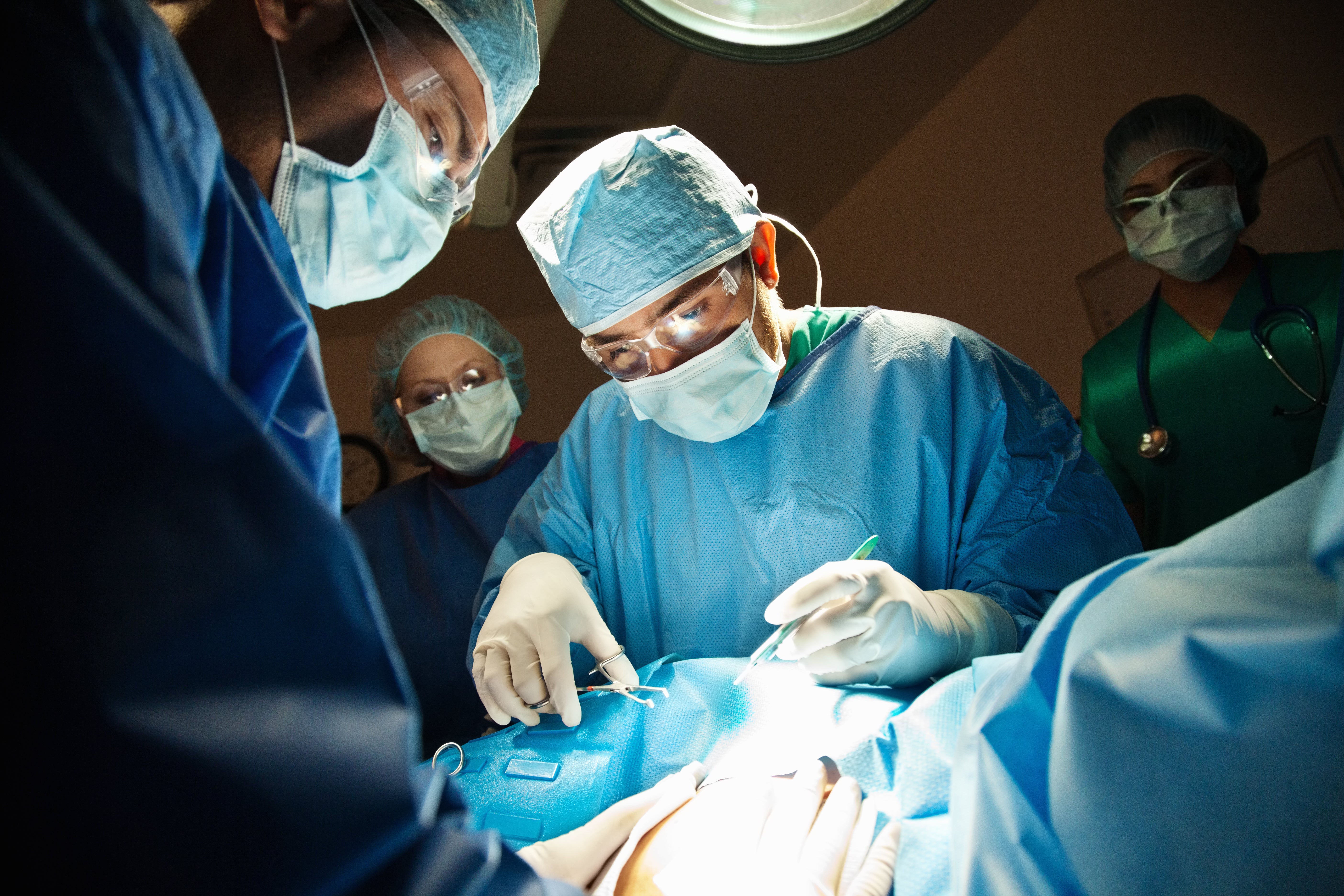
Around a third of babies in the UK are born by caesarean, according to latest NHS data, and around half of these surgeries are planned.
Yet, there is still a huge stigma surrounding elective C-section – and reports of women being refused the procedure even when they ask for one are not uncommon.
There is now a glimmer of hope – a parliamentary inquiry into birth trauma, launched this week, has called for a national plan to improve maternity care, claiming women are often “treated as an inconvenience” and calling for women’s choices about giving birth to be “respected”.
But in the meantime, why is choosing to have a caesarean still frowned upon in some quarters, and how can mums-to-be advocate for themselves if they want an elective caesarean?
In an extract published in the Mail on Sunday from her new book, Lucky: Learning To Live Again, former Made In Chelsea star Louise Thompson revealed that when she was giving birth to her son Leo in 2021: “I was refused a C-section and nearly bled to death after my womb tore.”

Thompson, 34, eventually had an emergency C-section, required multiple blood transfusions, and developed post-traumatic stress disorder (PTSD) as a result of the ordeal.
“Every pregnant woman is different, and their individual needs and preferences should play the most important role in planning the birth of their baby,” says Dr Ranee Thakar, president of the Royal College of Obstetricians and Gynaecologists (RCOG).
“If someone is considering a caesarean birth or has questions or anxieties regarding birth, they should tell their healthcare professional as soon as possible. Personal feelings, concerns and opinions are all important and should be respected by healthcare professionals when discussing birth plans.”
She stresses that a planned caesarean is a surgical procedure and the benefits and risks of this should be carefully discussed, alongside those associated with a planned vaginal birth. “The RCOG strongly believe that if a woman chooses a caesarean birth, her choice should be respected and supported,” Thakar adds. “Most women in the UK recover well and have healthy babies, whether they have a vaginal or a caesarean birth.”
Dr Shazia Malik, a consultant obstetrician and gynaecologist at The Portland Hospital, part of HCA UK, says: “There has historically been a stigma around elective caesarean sections, often characterised by the outdated notion of being ‘too posh to push’. However, this attitude fails to recognise the multitude of valid reasons a woman may need or choose to have a planned C-section.”

She points out that NICE guidelines say women should have a choice in how they deliver their baby, and says reasons for this can include having had a previous traumatic birth, certain medical conditions that make vaginal delivery riskier, or psychological factors – like anxiety or depression – that could be exacerbated by labour.
“Every pregnancy is different,” Malik adds, “and there are numerous medical and personal factors that can make an elective C-section the safest or most appropriate option for both mother and baby. Ultimately, the goal should be a safe and positive birth experience.”
Malik advises pregnant women to “openly discuss their hopes, fears and preferences around delivery” with their medical team as early into the pregnancy as possible, adding: “It’s crucial women feel empowered to have these conversations without judgment. As obstetricians, we want to work in partnership with expectant mothers, providing the necessary support so mothers-to-be can make a fully informed choice.”
She acknowledges that some women feel pressure to deliver vaginally, even when it compromises their own or their baby’s safety, and stresses: “A safe, healthy mother and baby should be the top priority, and no one should feel shame around how they deliver their baby.
“We must move past outdated attitudes and ensure all mothers feel empowered and have access to respectful, inclusive antenatal and postnatal care that supports their choices.”

Amina Hatia, a midwife and midwifery manager at the pregnancy research and baby loss charity Tommy’s, agrees elective C-sections are a choice that should be discussed and available to all pregnant women. “No decisions about your pregnancy and birth should be made without your informed consent, based on the best evidence,” says Hatia. “These discussions should always cover the benefits, risks, alternatives, and how you feel about the options.
“Sadly though, not all women are listened to or supported. They are not always able to ask questions and access the support they need to make a choice about the best birth option for them.
“There is also societal pressure, partly because of the promotion of unrealistic ideals, such as ‘the best way to give birth’, or the perception that someone is ‘too posh to push’. This fails to take into account the complex needs of pregnant women who may have had a previous traumatic experience, that has affected how they view birth and what they feel safe with.”
She advises those not feeling heard to seek a second opinion if necessary. “Write down any questions you may have and don’t be afraid to ask those questions,” she advises. “If you don’t understand the answers, ask for it to be explained again until it makes sense to you and you feel safe in making a decision that is right for you.”
Emma Armstrong, aka The Naked Doula, is a certified birth doula and hypnobirthing coach, who’s had one elective and one emergency caesarean herself.
She says emergency caesareans are “not always life or death” scenarios, and often come about due to “failure to progress”.
“I have had two caesarean births, both positive experiences,” says Armstrong. “There is definitely still a narrative out there that C-sections are an easy way out – that you don’t bleed and you get to save your vagina. Which isn’t true. You still bleed after birth and recovery is very tough. It’s major abdominal surgery and it’s not an easy way out.”







